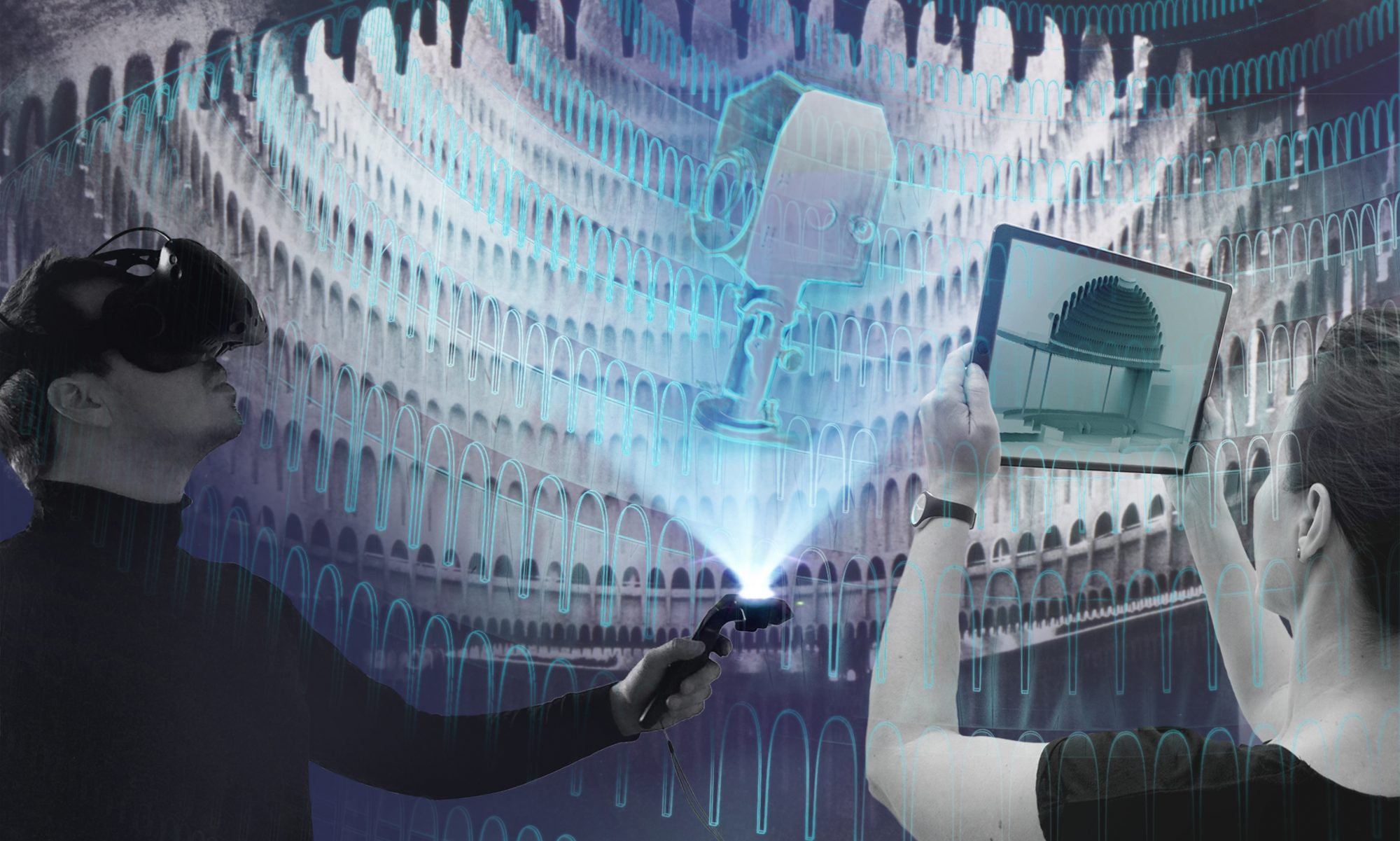The virtual learning space “rehearsal stage construction” aims to reduce the construction time of rehearsal stages by shifting the planning and organisation of construction processes into the virtual space with the help of VR glasses.
Rehearsal stages mark the actual stage design and serve as an important reference point for the actors and creative team to be able to work with the dimensions, levels and important scenic elements already in the initial phase of rehearsals. The rehearsal stages are often made of standard materials and the transformation of the actual stage design into a design made of standard materials requires its own planning. Therefore, students on the Theatre and Event Technology and Management course are given the semester assignment of planning a rehearsal stage and its construction and carrying it out in a practical test at the end. In the process, the students not only learn how to handle typical standard materials such as frames, stairs, steps and walls, but also have to take into account and correctly implement the safety requirements in the planning and construction.
The exercise takes place in the theatre laboratory of the Beuth University of Applied Sciences Berlin, but the many students and groups have to share the space, so there is often little time for a trial set-up before the practical examination. Many planning steps therefore happen purely theoretically, without being able to test the ideas with the standard materials.
The virtual learning space “rehearsal stage construction” can support and simplify this planning process. For this purpose, a true-to-scale 3D model of the theatre laboratory was created and equipped with 3D models of the available standard materials. In this way, the material list of the real theatre lab matches the virtual world.
Student groups have the opportunity to go into the virtual lab either alone or together and plan their rehearsal stage set-up. They can use the room for a brainstorming session to create a concept, enter and discuss a 3D model they have previously designed in the CAD programme or re-enact the step-by-step construction in the virtual room to be able to optimise processes and task distribution for the practical exercise.
The virtual learning space is available to students at any time of day so that the rehearsal stage can be planned and practised virtually independently of other courses and groups. In this way, bottlenecks in scheduling in the real theatre lab can be avoided or minimised. Thanks to the VR glasses, planning can already take place on the right scale, so that a feeling for the real dimensions of the construction can arise.
The prototype was developed and tested by digital.DTHG staff member Vincent Kaufmann in the summer of 2020 during the research phase for the “Virtual Teaching and Learning Spaces” sub-project.
More Prototypes:

Safety Signage
The virtual learning space “Safety Signage” aims to learn the function and message of safety signs practically and playfully in the virtual space.

Connect – understand media technology
“Connect” is a virtual learning space where you can familiarise yourself with modern media technology in the event sector and expand your knowledge.

Hazard Detector
The virtual learning room “Hazard Detector” aims to test theoretical knowledge in a realistic working environment.


